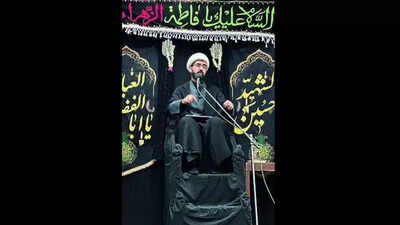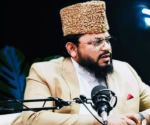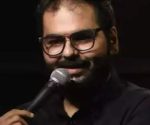Muharram preachers from across country and world converge on city | Mumbai News – Times of India


As heavy rain lashes the city, inside the Khoja Shia Isnaashri Mosque on busy Bazaar Road, Bandra (West), Maulana Fazleabbas Kanji transports a group of Shia Muslims to the dry days at Karbala when the water of the Euphrates was banned for Imam Hussain and his companions. Clad in a black robe and white turban, the bearded and bespectacled Kanji, a preacher from England, delivers the Muharram sermons.His talks are centred around the tragedy at Karbala in Iraq in 680 CE when Prophet Muhammad’s grandson Imam Hussain and his 72 companions were martyred by the army of Ummayad king Yazid.
His sermons began with the start of Islamic month Muharram (July 7) and will continue till Ashura, 10th Muharram, the day of Hussain’s martyrdom. He also emphasises acquiring knowledge, remaining honest and truthful. Like Hussain, who refused to toe the line of a dictator (Yazid), the followers are told to remain righteous till they proceed to paradise.
Since mourning the Karbala tragedy through prayers, processions, recitations of mournful poetry, sessions featuring talks and sermons by preachers and public self-flagellation is part of the Shia faith, preachers, commonly called zakirin in Urdu, are chosen carefully. Significantly, many Shia mosques and anjumans (societies) in the city have invited sermon reciters from outside Mumbai.
“This is my first visit to Mumbai and India and I have been greeted by Mumbai’s monsoon,” smiles London-based Kanji, whose ancestors had migrated from Gujarat to Uganda and whose parents fled from Kampala to England in the 1970s after the despotic Idi Amin expelled Asians. “The people here are good, food is nice – though I am not a foodie,” adds the preacher later.
Khoja Shia Isnaashri Jamaat (Mumbai) president Ali Akbar Shroff explains that Mumbai has a long tradition of Azadari (Muharram mourning). “Mumbai remains an important centre of Azadari with important venues like Khoja Masjid, Kesar Baug Hall, Moghul Masjid hosting preachers and speakers. Over the years, renowned speakers have visited our centres and the tradition continues,” Shroff says.
We catch up with senior scholar-preacher, Maulana Abid Bilgrami, who has been visiting the city during the 10 initial days of Muharram for the last 26 years. Coming from Hyderabad, Bilgrami is today one of the “busiest” and most-travelled Shia maulanas whose talk and travel schedule can give any CEO of an MNC a run for his money. Have a look at his current schedule: mrning recitations for online majlis in Boston and for Ahlebait channel in London, followed by preachings at Rizvi College, Bandra, then at Khoja Masjid at Dongri, followed by Zainabia Imambara at Bhendi Bazaar, and then Kesar Baug Hall in Dongri.
“It is because of divine help that I manage to address the sermons at so many venues. People of Mumbai have shown so much love that I spend the initial 10 days of Muharram here before I go anywhere else,” he says. Post-Ashura, Bilgrami is booked for talks in Canada, New York, Boston, London, Melbourne, and the list continues. Commenting on Bilgrami’s global tours, a community member quips: “There is perhaps no place on the planet where Islam has reached and Maulana Bilgrami has not gone.”
Move to Dongri-based beautiful Masjid-e-Iranian or Mughal Mosque. Here Maulana Yasoob Abbas from Lucknow has kept his date with the Muharram majlis for the last 30 years. “I first visited Mumbai with my late father Maulana Mirza Mohammed Athar, who delivered annual sermons at Mughal Mosque for 58 years without a single break. Mumbai is my second home,” says Abbas, whose uncle Maulana Ashfaque filled the sermon’s slot at Mughal Mosque vacated by his father’s death in 2016.
After Ashfaque’s death, Yasoob’s brother Maulana Aijaz Athar speaks at the same venue.
An engineer working with an IT firm, Maulana Amber Abidi from Lucknow has been visiting Mumbai since 2021. “The focus of my talks is youth and betterment of society. I tell how events of Karbala can be used as an example of patience, antidote to depression,” he says.















